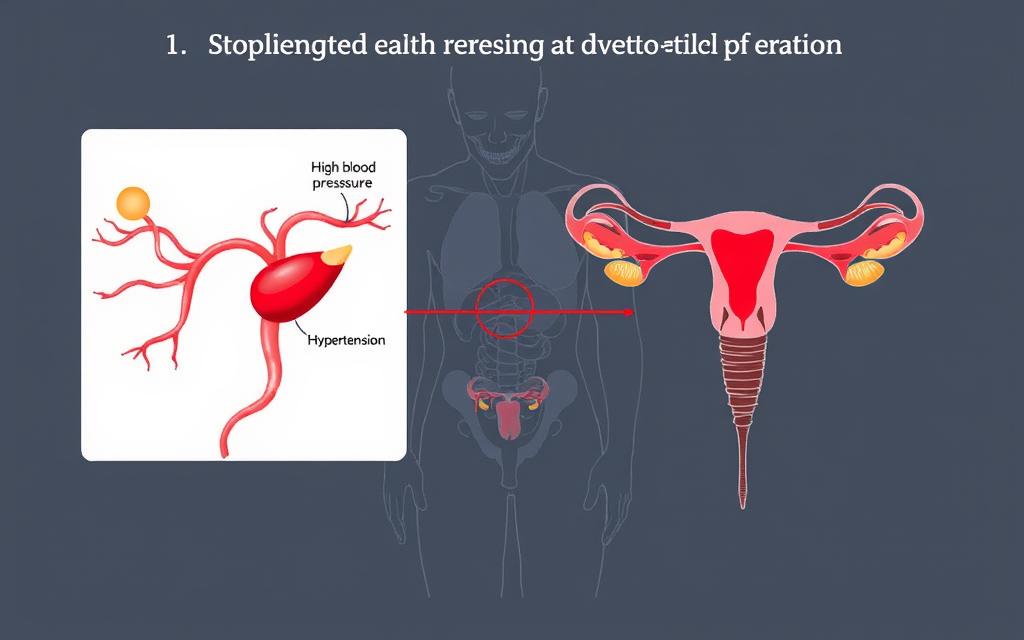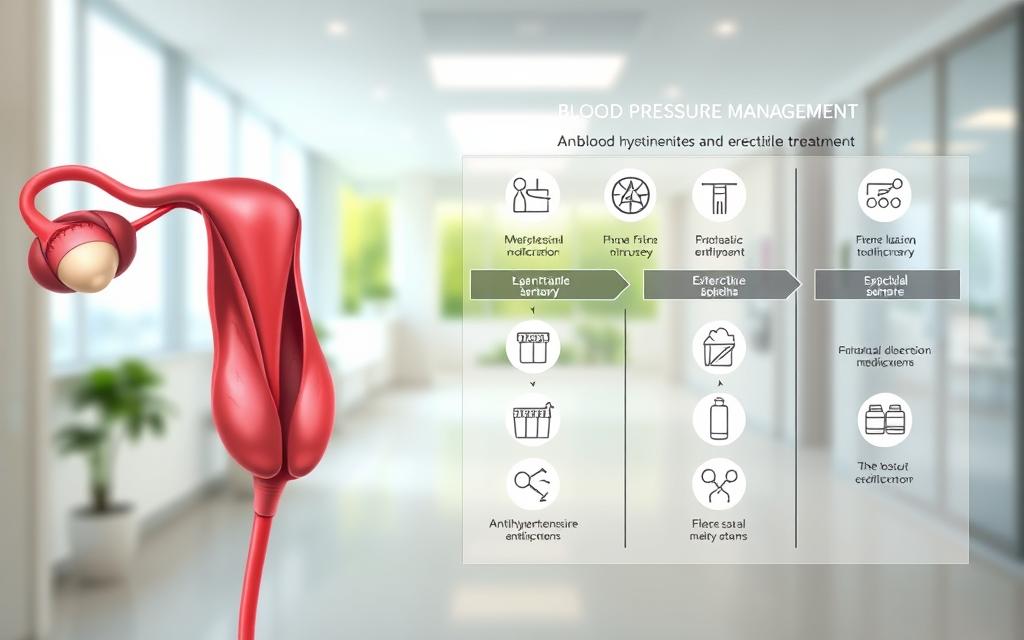Exploring the Link Between Erectile Dysfunction and Weed: What You Need to Know
Understanding the connection between hypertension and erectile dysfunction is crucial for maintaining overall health. Hypertension, or high blood pressure, is a condition that affects millions of people worldwide, and it has been closely linked to erectile dysfunction (ED).
The relationship between these two health issues is complex, involving factors such as vascular health and lifestyle choices. Research has shown that men with hypertension are more likely to experience ED due to the impact of high blood pressure on blood flow. By understanding this link, individuals can take proactive steps towards managing their health.
As we explore the connection between erectile dysfunction and weed, it’s essential to first grasp the underlying health conditions that contribute to ED. This knowledge will provide a foundation for discussing the potential effects of cannabis on erectile dysfunction.
Understanding Erectile Dysfunction and Its Prevalence
Erectile dysfunction (ED) is a condition that affects millions of men worldwide, causing significant distress and impacting their quality of life. It is characterized by the inability to achieve or maintain an erection sufficient for satisfactory sexual performance.
What Defines Erectile Dysfunction
Erectile dysfunction is defined as the persistent inability to achieve or maintain an erection. This condition can be classified into different types, including:
- Psychogenic ED, which is related to psychological factors such as stress, anxiety, or depression.
- Organic ED, which is caused by underlying medical conditions, such as diabetes, hypertension, or cardiovascular disease.
- Mixed ED, which is a combination of psychogenic and organic factors.
Common Risk Factors and Causes
The risk factors and causes of erectile dysfunction are multifaceted. Some of the common risk factors include:
- Age: The risk of ED increases with age.
- Medical conditions: Conditions like hypertension, diabetes, and cardiovascular disease can contribute to ED.
- Lifestyle factors: Smoking, excessive alcohol consumption, and a sedentary lifestyle can also contribute to the development of ED.
Impact on Quality of Life and Relationships
Erectile dysfunction can have a significant impact on a man’s quality of life and his relationships. It can lead to feelings of inadequacy, low self-esteem, and depression. The emotional distress caused by ED can also affect relationships with partners, friends, and family.
Understanding the causes, risk factors, and impact of erectile dysfunction is crucial for developing effective treatment strategies. By addressing the underlying causes and adopting a comprehensive treatment approach, men can regain their sexual health and improve their overall well-being.
Does High Blood Pressure Cause Erectile Dysfunction?
Understanding the link between high blood pressure and erectile dysfunction is crucial for managing both conditions. High blood pressure, or hypertension, is a condition that affects millions of people worldwide, and its impact on erectile function is significant.

The Physiological Connection Between Hypertension and ED
The physiological connection between hypertension and erectile dysfunction (ED) is rooted in the vascular system. Hypertension damages blood vessels, making it harder for blood to flow to the penis, which is essential for achieving an erection. Vascular health is crucial for erectile function, and hypertension compromises this health.
Moreover, hypertension often coexists with other cardiovascular risk factors, such as high cholesterol and diabetes, which further exacerbate erectile dysfunction. The combination of these factors can lead to a significant decline in sexual health.
Statistical Evidence and Research Findings
Research has consistently shown a strong link between hypertension and erectile dysfunction. Studies indicate that men with hypertension are more likely to experience ED than those without hypertension. For instance:
- A study published in the Journal of Hypertension found that nearly 70% of men with hypertension had some degree of erectile dysfunction.
- Another research study highlighted that the prevalence of ED increases with the severity of hypertension.
These findings underscore the importance of managing hypertension to mitigate its effects on erectile function.
How Long-term Hypertension Affects Sexual Function
Long-term hypertension can have a profound impact on sexual function. Chronic high blood pressure can lead to:
- Damage to the blood vessels and nerves that control erection.
- Reduced blood flow to the penis, making it harder to achieve an erection.
- Increased risk of cardiovascular disease, which is closely linked to erectile dysfunction.
Managing hypertension through lifestyle changes and medical treatment can help alleviate some of these effects and improve overall sexual health.
The Mechanisms Behind Hypertension-Related ED
Chronic hypertension can lead to erectile dysfunction through several key mechanisms. Understanding these mechanisms is essential for managing both conditions effectively.
Blood Vessel Damage and Reduced Blood Flow
High blood pressure can cause significant damage to blood vessels, making them narrower and less flexible. This damage reduces blood flow to various parts of the body, including the penis, making it difficult to achieve and maintain an erection.
The reduced blood flow is a result of the damage to the vascular endothelium, the inner lining of blood vessels. When the endothelium is damaged, it cannot function properly, leading to a decrease in the production of substances that help to relax blood vessels.
Endothelial Dysfunction and Nitric Oxide Production
Endothelial dysfunction plays a crucial role in the development of erectile dysfunction in men with hypertension. The endothelium produces nitric oxide (NO), a key molecule that helps to relax the smooth muscle in blood vessels, improving blood flow.
In individuals with hypertension, the production of NO is often impaired, leading to reduced vasodilation and increased vascular resistance. This impairment makes it harder for men to achieve an erection.
Hormonal Implications of Chronic Hypertension
Chronic hypertension can also have hormonal implications that affect erectile function. For instance, hypertension can lead to changes in the levels of certain hormones, including testosterone, which is crucial for sexual health.
- Reduced testosterone levels can lead to decreased libido and erectile dysfunction.
- Hypertension can also affect the balance of other hormones that play a role in erectile function.
Blood Pressure Medications and Their Sexual Side Effects
Blood pressure medications are crucial for managing hypertension, yet they can sometimes exacerbate erectile dysfunction. Understanding the impact of these medications on sexual health is essential for overall well-being.
Common Antihypertensive Drugs That May Worsen ED
Certain blood pressure medications have been linked to an increased risk of erectile dysfunction. These include:
- Beta-blockers: Used to lower blood pressure and heart rate, beta-blockers can reduce blood flow, potentially worsening ED.
- Diuretics: While effective in reducing blood pressure, diuretics can lead to dehydration if not managed properly, which can negatively affect erectile function.
It’s essential to note that not all medications within these categories have the same effect, and individual reactions can vary.
Alternative Medications With Fewer Sexual Side Effects
Fortunately, there are antihypertensive medications that are less likely to cause sexual side effects. These include:
| Medication Type | Effect on ED |
|---|---|
| ACE inhibitors | Generally considered to have a neutral or positive effect on erectile function. |
| Angiotensin II receptor blockers (ARBs) | May improve erectile function in some patients by enhancing blood flow. |
| Calcium channel blockers | Can help improve blood flow, potentially benefiting erectile function. |
Discussing Medication Concerns With Your Doctor
If you’re experiencing sexual side effects from your blood pressure medication, it’s crucial to discuss these concerns with your healthcare provider. They can help determine the best course of action, which may include adjusting your medication regimen.
Open communication with your doctor is key to managing both your blood pressure and sexual health effectively.

By working closely with your healthcare provider and exploring alternative treatments when necessary, you can find a balance that supports both your cardiovascular and sexual health.
Effective Management Strategies for Both Conditions
To manage high blood pressure and ED, it’s crucial to adopt a comprehensive plan that includes lifestyle modifications and appropriate medical interventions. By addressing both conditions simultaneously, individuals can improve their overall health and quality of life.
Lifestyle Modifications for Better Blood Pressure and Sexual Health
Making healthy lifestyle choices is fundamental in managing both high blood pressure and ED. This includes:
- Eating a balanced diet rich in fruits, vegetables, and whole grains
- Engaging in regular physical activity, such as walking or other aerobic exercises
- Maintaining a healthy weight to reduce the strain on the heart
- Avoiding smoking and limiting alcohol consumption
Regular exercise not only helps in managing blood pressure but also improves sexual function by enhancing blood flow and overall cardiovascular health.
Treatment Options for ED in Hypertensive Patients
For individuals with high blood pressure and ED, treatment options must be carefully considered to ensure they do not adversely interact with blood pressure medications.
Oral Medications and Their Compatibility With Blood Pressure Drugs
Oral medications such as PDE5 inhibitors (e.g., sildenafil, tadalafil) are commonly used to treat ED. However, their compatibility with certain blood pressure medications, like nitrates, is a concern due to the risk of hypotension.
Alternative Therapies and Devices
For those who cannot use oral medications or prefer not to, alternative therapies and devices are available. These include vacuum erection devices and penile implants.
When to Seek Medical Help
It’s essential to seek medical help if symptoms of ED persist or if blood pressure remains uncontrolled despite lifestyle modifications and medication. A healthcare provider can offer personalized advice and adjust treatment plans as necessary.
By adopting a comprehensive management strategy, individuals can effectively manage both high blood pressure and ED, improving their overall well-being.
Conclusion: Taking Control of Your Cardiovascular and Sexual Health
Managing hypertension and erectile dysfunction requires a comprehensive approach that addresses overall cardiovascular health. By understanding the link between these conditions, individuals can take proactive steps to improve their well-being.
A healthy diet rich in essential nutrients, along with regular exercise and stress management, can help mitigate the risk of erectile dysfunction causes, including hypertension. Limiting or avoiding certain foods that can exacerbate these conditions is also crucial.
By making informed lifestyle choices and seeking medical help when needed, individuals can reduce their risk of developing erectile dysfunction and maintain optimal cardiovascular health. This holistic approach enables individuals to take control of their health, improving both their cardiovascular and sexual well-being.
